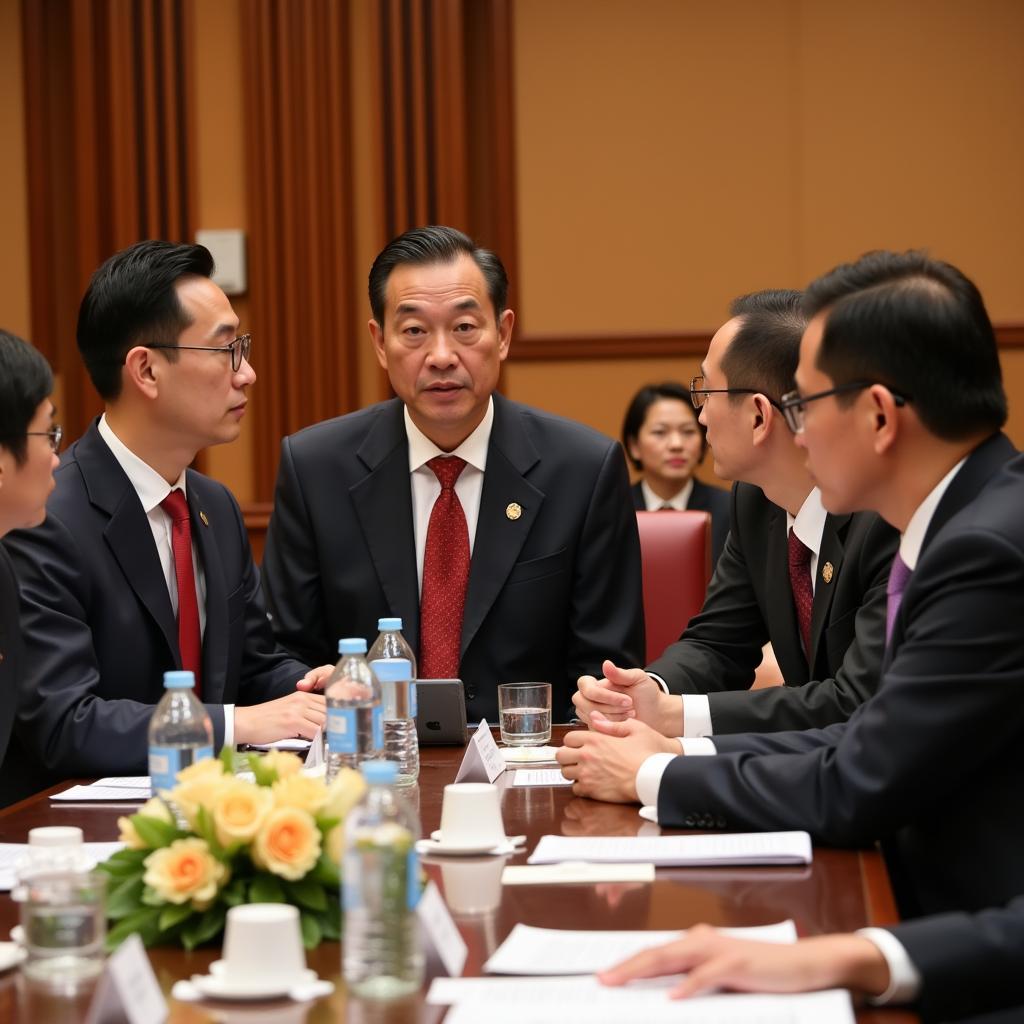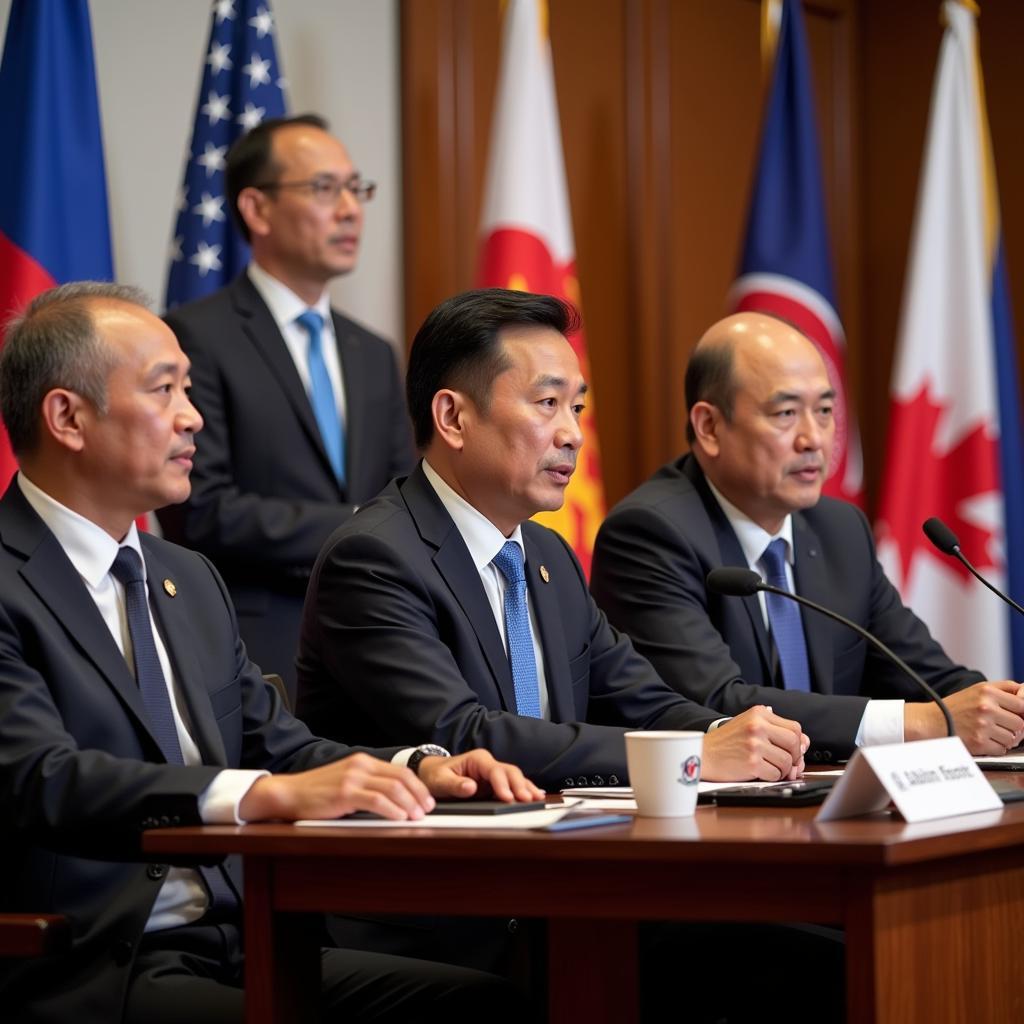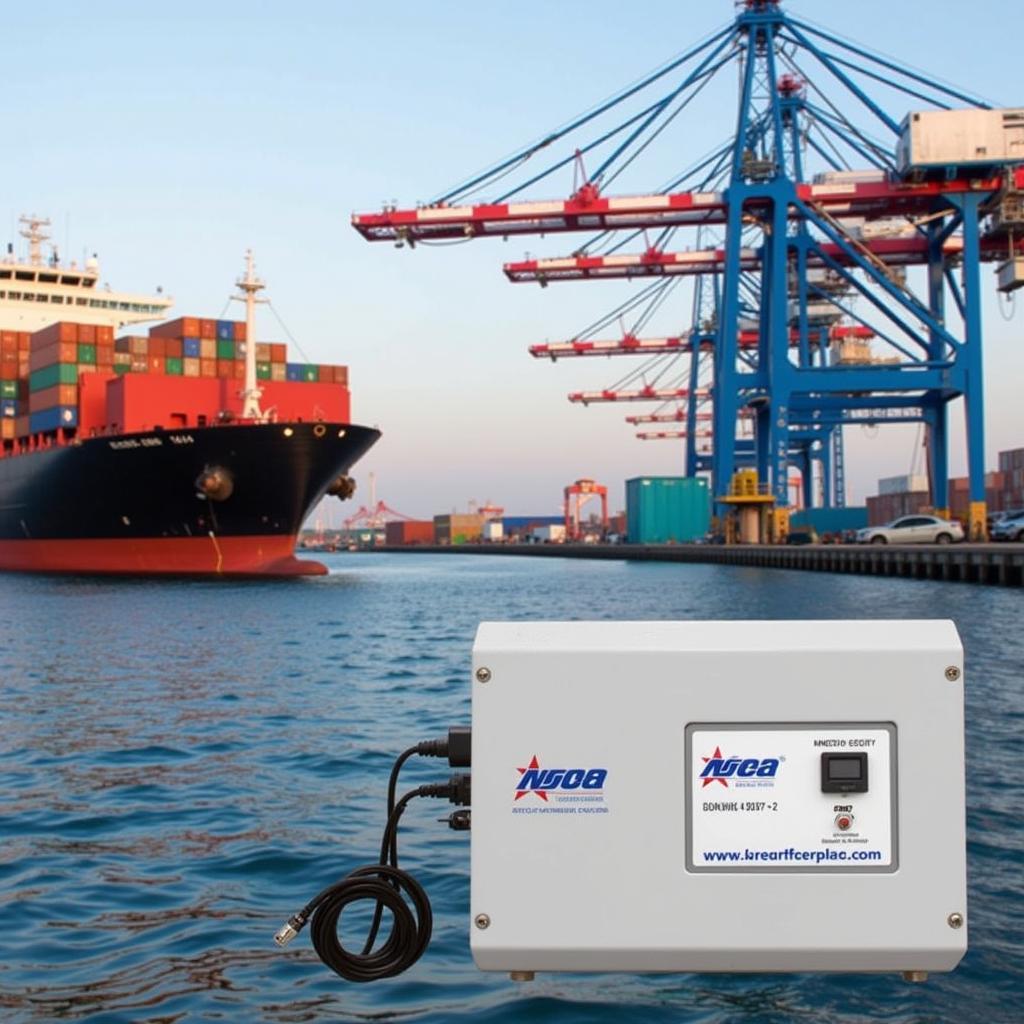ASEAN leaders play a pivotal role in navigating the region’s complex political and economic landscape. From fostering economic growth to addressing regional security challenges, these leaders are at the forefront of shaping Southeast Asia’s future. Their decisions and collaborations impact not only their individual nations but also the broader ASEAN community and its standing on the global stage.
The Association of Southeast Asian Nations (ASEAN) is a vital intergovernmental organization that promotes political, economic, and socio-cultural cooperation among its ten member states. The ASEAN leaders, representing these diverse nations, bear the responsibility of guiding the region towards sustainable development and prosperity. Their leadership is crucial in addressing critical issues such as climate change, economic integration, and regional security. The dynamic interplay between individual national interests and the collective goals of ASEAN often presents complex challenges for these leaders to navigate.
The Role of ASEAN Leaders in Regional Cooperation
ASEAN leaders are instrumental in driving regional cooperation initiatives. They participate in various summits and forums, where they discuss and formulate strategies to address shared challenges and opportunities. These high-level meetings provide a platform for ASEAN leaders to engage in dialogue, build consensus, and strengthen partnerships within the region and with external partners.
- Facilitating economic integration through initiatives like the ASEAN Economic Community (AEC)
- Promoting peace and security by addressing territorial disputes and transnational crime
- Enhancing socio-cultural cooperation through educational exchanges and cultural programs
- Strengthening ASEAN’s external relations with dialogue partners such as the US, China, and the EU
You can find out more about opportunities for collaboration at the ASEAN Australia Education Dialogue.
 ASEAN Leaders Meeting
ASEAN Leaders Meeting
Navigating Geopolitical Challenges
The strategic location of Southeast Asia places ASEAN leaders at the center of complex geopolitical dynamics. Balancing relations with major powers, managing territorial disputes, and promoting regional stability are key aspects of their leadership.
- Managing relations with major powers like the US and China
- Addressing the South China Sea dispute
- Combating terrorism and transnational crime
- Promoting regional stability amidst evolving geopolitical landscape
 ASEAN Leaders Addressing Geopolitical Challenges
ASEAN Leaders Addressing Geopolitical Challenges
ASEAN leaders also champion initiatives like the 9th ASEAN Senior Management Development Program, fostering leadership within the region.
Fostering Economic Growth and Development
ASEAN leaders prioritize economic growth and development as key pillars of regional integration. They actively promote trade liberalization, investment facilitation, and infrastructure development to create a more dynamic and interconnected ASEAN economy.
- Promoting the ASEAN Economic Community (AEC) to enhance regional economic integration
- Facilitating cross-border trade and investment
- Developing infrastructure connectivity within the region
- Supporting small and medium-sized enterprises (SMEs)
- Promoting innovation and digital economy
More information about the leaders attending a significant event can be found at 10 ASEAN Leaders at Republic Day.
“ASEAN leaders are playing a crucial role in driving economic development in the region, especially in supporting SMEs and integrating the regional economy,” says Dr. Amelia Tan, a prominent economist specializing in Southeast Asian affairs.
Engaging the Youth and Empowering Communities
Recognizing the importance of youth engagement, ASEAN leaders prioritize initiatives aimed at empowering young people and fostering a sense of community within the region. Programs like the ASEAN 3 Youth Camp encourage cross-cultural understanding and leadership development among the next generation.
“Investing in the youth is investing in the future of ASEAN. Our leaders understand this and are committed to creating opportunities for young people to thrive,” says Mr. Kenji Sato, a youth leadership development specialist based in Jakarta.
Initiatives like the ASE Science Leaders Hub also contribute to building capacity and expertise within the region.
Conclusion
ASEAN leaders shoulder the responsibility of guiding the region through a complex and ever-changing landscape. Their commitment to regional cooperation, economic development, and community building is crucial for shaping a prosperous and sustainable future for Southeast Asia. The collective efforts of these leaders are instrumental in fostering peace, stability, and prosperity within the ASEAN community and beyond.
FAQ
- What is the role of ASEAN leaders in regional security?
- How do ASEAN leaders promote economic integration?
- What are some of the key challenges faced by ASEAN leaders?
- How do ASEAN leaders engage with the international community?
- What is the significance of ASEAN summits and forums?
- How do ASEAN leaders promote sustainable development?
- How do ASEAN leaders empower the youth and communities?
Need support? Contact us 24/7: Phone: 0369020373, Email: [email protected] or visit us at: Thôn Ngọc Liễn, Hiệp Hòa, Bắc Giang, Việt Nam.

